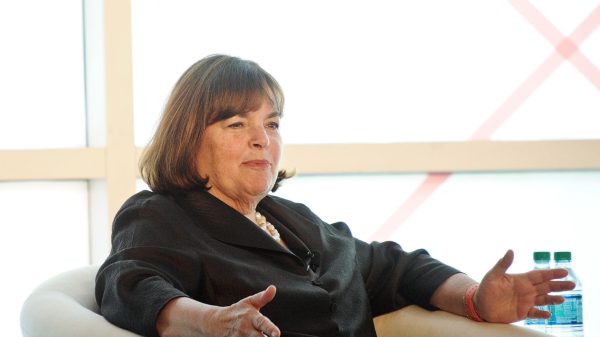First-person storytelling is taken to an excessive degree in Nickel Boys, RaMell Ross’ adaptation of Colson Whitehead’s Pulitzer Prize-winning 2019 novel, whose primary action is shot from the point-of-view of its protagonist and, eventually, his best friend.
That approach is intended to foster intimate engagement with the plight of its victimized characters. Yet instead, it has the opposite effect, calling such constant undue attention to itself (and its artificiality) that it proves a distracting gimmick which undercuts the proceedings’ portrait of torment, perseverance, camaraderie, and survival. Its formal showmanship unconvincing and off-putting, the film is a case study in the hazards of prizing style over substance.
The opening night selection of the 62nd New York Film Festival, and in theaters on Oct. 25, Nickel Boys doesn’t establish context for its tale, although later dialogue indicates that it’s set in 1960s Tallahassee, Florida, during Jim Crow. There, Elwood (Ethan Cole) spends his days gazing up at orange trees, twirling leaves between his fingers, and gently touching spiderwebs, all of which Ross shoots with a brand of dreamy expressionism reminiscent of his 2018 documentary Hale County This Morning, This Evening.
From the get-go, this imagery comes across as false, both because it’s so striking that it reeks of self-consciousness—be it the sun shining just right through the trees, or Elwood’s reflection briefly materializing on an iron—and because, regardless of its low angles, it doesn’t resonate as the viewpoint of a young child; rather, it’s the highly affected gaze of a director taken with his ability to craft lovely sights from a pint-sized POV.

Brandon Wilson and Ethan Herisse
Amazon MGM Studios
No matter the object of his consideration (which is frequently his hands), Elwood stares at it for three seconds longer than is natural—another way that Nickel Boys cares less about realistic interior perspective than beautiful aesthetics. That continues to be the case once Elwood (Ethan Herisse), who resides with his grandmother Hattie (Aunjanue Ellis-Taylor), matures and is given the opportunity by his high school teacher Mr. Hill (Jimmie Fails) to attend Melvin Griggs Technical College, where he’ll get a real education that doesn’t involve American History textbooks filled with racial epithets.
Alas, on his walk to Melvin Griggs, he accepts a ride from a dapper stranger who’s promptly pulled over by the cops. Despite being innocent of any crime, Elwood is shipped to Nickel Academy reform school, where he’s told by administrator Spencer (Hamish Linklater) that proper conduct results in graduation and freedom, and misbehavior leads to unpleasant punishment.
In the cafeteria, Elwood meets Turner (Brandon Wilson) and a friendship is born. Once their bond is struck, Nickel Boys begins alternating between the two teens’ POVs, thereby allowing it to depict Elwood’s face and, also, to stage a few traditional shot-countershot conversations.
This certainly provides some welcome vantage-point diversity, but Ross’ direction is always the center of attention, preventing us from truly entering and inhabiting his protagonists’ spaces. Still, Herisse and Wilson are charismatic, and Elwood and Turner’s ordeal turns out to be incredibly harrowing, beginning with Elwood getting cold-cocked for trying to stop a bully from picking on another kid, and then getting whipped by the nastily intolerant Spencer simply for being involved in the incident.
Ross and Joslyn Barnes’ script conceals details in the same way that the director’s boxy 1.33:1 frame deliberately obscures via its narrow perspective. Nickel Boys complements its primary plot with regular intertitle photographs, archival film clips (of Black children playing, Black adults working, and white horsemen and their dogs chasing Black men up trees, among other things), and movie footage (specifically, from The Defiant Ones) that suggest the historic nature of Elwood and Turner’s suffering, as well as the misery lurking around the edges of its drama, just out of sight.
Inspired by Martin Luther King Jr., Elwood has a burning desire to participate in the burgeoning Civil Rights movement. Turner, however, deems that impulse perilous, since he believes that escape from their nightmarish situation, if possible, can’t come from active confrontation.
Nickel Boys intermittently cuts to the adult Elwood (Daveed Diggs), who in the 1970s owns and operates a moving company and in the 2000s is grappling with unearthed revelations about Nickel Academy, and Ross differentiates these passages by depicting Elwood from just behind his head.
That hovering position speaks to his torment—it’s as if the camera is one more thing haunting him—and it aids the material’s finest scene, in which Elwood, drinking at a bar, runs into a former Nickel Academy classmate whose information about their compatriots is as distressing as his own scarred and shaken condition. For the most part, though, the film concentrates on the ’60s, with Elwood and Turner collecting illicit payoffs on behalf of white school employee Harper (Fred Hechinger) and endeavoring to avoid the ire of Spencer, who’s soon ordering young boxer Griff (Luke Tennie) to throw a fight (so he can profit) and fuming when the scheme doesn’t go according to plan.
The longer it proceeds down its path, the less Nickel Boys’ methods grate, but by that point, the damage is largely done. Ross and cinematographer Jomo Fray’s visuals are routinely gorgeous albeit in such a conspicuous way that they create distance between the characters and viewers. Additionally contributing to that state of affairs are stilted to-the-camera interactions, particularly by Ellis-Taylor, whose mannered performance is simply another element that italicizes the film’s construction. Linklater and Hechinger, on the other hand, barely give performances at all; in the final edit, they’re reduced to quickly glimpsed embodiments of ugly racism.
Ironically, Nickel Boys is most affecting during its unconventional finale, a long-form montage that relays the fate of its two main characters and, in doing so, drops the bombshell it’s been setting up (somewhat transparently) for its prior two hours. Ross’ interplay of images has a fluidity and feeling that almost transcends his prior missteps, capturing the sweep of personal and national history—and the tragedy, triumphs, and reinventions strewn throughout it—with graceful flair. Alas, such dexterity is otherwise often lacking from this uneven depiction of racial abuse, determination, and defiance, which strains so hard to make one feel that it elicits only detachment.











